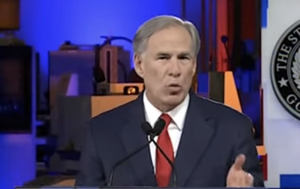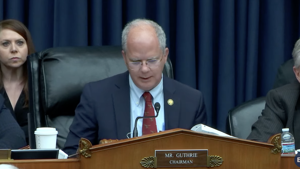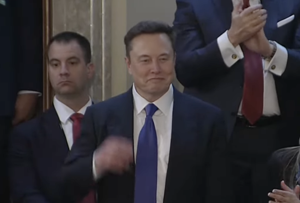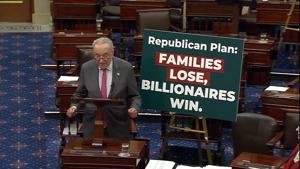Value of movie and TV tax credits debated in California
The latest round of movie and TV tax credits is projected to keep thousands of good-paying jobs in California and boost the state’s economy by $1.4 billion.
That breaks down to $1 billion in qualified in-state spending and $629 million in qualified wages, said Gov. Gavin Newsom’s office. The word “qualified” refers to tax credits.
The office says 52 productions benefiting from the tax credits employ an estimated 8,900 cast and crew members and 46,400 background performers or “extras.” California is offering the tax credits as it competes with other places that offer credits for filming there, such as the Canadian cities of Toronto, Ontario, and Vancouver, British Columbia, and states such as Georgia, New York and New Mexico.
But economist Wayne Winegarden says tax credits aren’t the answer.
Newsom more than doubled this year’s California Film and TV Tax Credit program to $750 million from $330 million. The California Legislature approved that expansion in Assembly Bill 1138, which Newsom signed it into law in July.
Winegarden said that money has to come from somewhere.
“Santa Claus doesn’t work in Sacramento,” Winegarden said, referring to the state’s capital.
“He [Newsom] is imposing taxes high enough to be able to transfer those resources,” said Winegarden, director of the Center for Medical Economics and Innovation at Pasadena-based Pacific Research Institute.
Winegarden, a senior fellow in business and economics, also noted 8,900 cast and crew jobs for movie and TV productions isn’t a large number for California. He added Newsom isn’t creating those jobs.
“That’s the problem,” Winegarden told The Center Square. “Any jobs he thinks he’s creating, by definition, he’s also destroying.
“If I took that money away from you and gave it to the movie industry, the movie industry is spending more, but you’re spending less,” Winegarden said. “So your grocer has less money. He’s hiring fewer people. You’re not buying cars from the car dealership, which hires fewer people. And it ripples through the economy in the same exact way.”
A better approach is to create an environment less hostile to businesses in California, Winegarden said, citing the state’s high taxes and costs for labor, housing and energy.
California consistently has the highest gas prices in the U.S. The price Friday in the Golden State was $4.596 a gallon, well above the national average of $3.068 a gallon, according to AAA.
“He (Newsom) is trying to bribe people to make movies here because we’ve made the environment so hostile to making movies that film studios don’t want to do production in Hollywood,” Winegarden said. “It’s almost laughable how ridiculous that is.”
Ultimately tax credits don’t work in keeping productions in California, he said. “Once you stop bribing them, they leave. If I have pay you to be my friend, you’ll only be my friend as long as I pay you.”
But Newsom’s office argues the tax credits are “driving an unparalleled economic activity within the Los Angeles filming zone and regions beyond.”
Tax credits from the latest round are going to 10 major studio or non-independent projects, such as an untitled “Jumanji” sequel from Sony Pictures, the crime movie “Heat 2” from Forward Pass Inc., Blumhouse Films’ adaptation of the novel “Sunday” and the Eva Longoria-directed “The Fifth Wheel” from Netflix. Recipients also include an untitled NBC Universal project from producers Daniel Kwan and Daniel Scheinert, who won the 2023 Oscar for best picture for the sci-fi movie “Everything Everywhere All at Once.”
“I’m thrilled that the new ‘Jumanji’ movie is going to be made in California,” director Jake Kasdan said in a news release. “I have long looked forward to the day when the California Film Incentive would help us bring movies like this one back home — and now that it does, I am so grateful that ours will be among the first to take advantage of the new program. Making these big popcorn movies requires hundreds of specially-skilled people, and the world’s finest live in California.”
The credits also go to 42 independent projects, such as “Epiphany,” starring Bill Murray and Kristin Wiig, and “The Incredible Heist of Hallelujah Jones,” starring Janelle Monáe.
The Center Square reached out to the Governor’s Office to respond to Winegarden’s comment that tax credits for movies and TV shows don’t benefit California.
Production reports show the credits are bringing filming back to Hollywood, Tara Gallegos, deputy director of communications for Newsom’s office, told The Center Square. She referred to the ProdPro tracking service report showing 95 titles are now in active development or preproduction – more than New York, Georgia and New Mexico combined.
Applications for the tax credit have increased more than 400%, Gallegos said, answering The Center Square’s question by email.
“These tax credit programs directly benefit the below-the-line workforce — the backbone of American film and television production,” she said. “These are the electricians, set builders, costume designers, camera operators, and thousands of other skilled professionals who bring stories to life and keep the industry running.”
“Since its inception in 2009, California’s Film & Television Tax Credit Program has generated over $26 billion in economic activity and supported more than 197,000 cast and crew jobs across the state,” Gallegos said.
She noted the state has seen a massive return on every dollar of tax credit awarded: $24.40 in economic output, $16.14 for gross domestic product and $8.60 in wages.
The Legislative Analyst’s Office called Newsom’s expansion of the tax credit a valid approach to increasing the number of productions that choose to film in California, but added, “Although the film tax credit likely increases the size of California’s film industry, there is weak evidence that expanding the tax credit would benefit California’s economy as a whole.”
Winegarden argued the better approach is to make California more attractive to movie and TV studios and other industries. “Focus on good growth, good education. Focus on addressing the homelessness crisis. Focus on keeping costs under control.”
Latest News Stories

Texas Supreme Court sets expedited briefing schedule in Abbott-Wu case

Illinois quick hits: Former Chicago schools dean sentenced for sexual assault

Friday meeting with Putin a ‘listening exercise’ for Trump, Leavitt says

S&P 500, Nasdaq enjoy record day

Trump condemns possible low-income housing Pacific Palisades rebuild

Pro-marijuana groups claim reclassification would be good for businesses

Illinois quick hits: Fatal crash involved Guatemalan national; tentative Chicago firefighters contract

WATCH: Sonya Massey bill requiring full employment history for police candidates now law

Republicans respond to data showing 10M will soon lose Medicaid coverage

DOGE can access sensitive data at federal agencies, appeals court rules

Chicago group says Illinois officials break laws as they blast Trump

Musk has coalition support in lawsuit threat against Apple over App Store treatment













